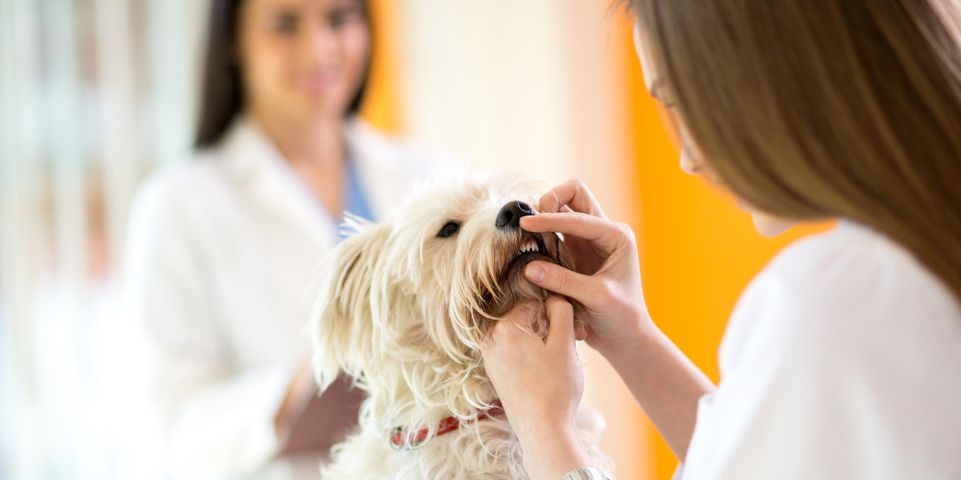
Proper dental care is just as important for your dog as it is for your human family. Along with common conditions like gum disease and tooth decay, dogs can also experience epulis or epulides, which are benign, non-cancerous growths on the gums. Scheduling a visit with a veterinarian is crucial when you notice dental abnormalities, but the following guide can help you identify issues so you can seek the proper treatment.
What Are Epulides?
There are actually three different types of epulis that can affect your pet:
- Fibromatous: These growths involve the fibrous gum tissues within your dog’s mouth.
- Ossifying: Ossifying epulides often originate in bone tissue, although they can affect fibrous gum tissue as well.
- Acanthomatous: This growth originates from the periodontal ligaments that are responsible for anchoring a dog’s tooth into the jaw.
While all of the above types are benign, acanthomatous growths are known to penetrate surrounding areas, including gum and bone tissues. However, all three types can be invasive and can cause dental issues for your pet.
What Symptoms Should I Look For?
 The best way to identify an epulis is to examine your dog’s gums for abnormal growths. Their appearances can vary, with some growths appearing smooth while others may look bumpy.
The best way to identify an epulis is to examine your dog’s gums for abnormal growths. Their appearances can vary, with some growths appearing smooth while others may look bumpy.
Certain symptoms will also accompany canine epulides. Your pet’s nutritional intake may suffer due to problems chewing, which can lead to a lack of appetite and weight loss. An epulis can also increase drooling, as well as cause bleeding gums, bad breath, lymph node enlargement, and jaw swelling.
How Are Epulides Treated?
An epulis can be resected or removed via surgery, or it can be treated with laser surgery or cryosurgery, which involves freezing the growth. If the epulis is aggressive and has invaded surrounding bone, removal of the upper or lower section of the jaw may also be recommended.
The recovery periods are dependent on the extent of the surgery, how big or small the growth was, and how much or how little of the jaw needed to be removed. Removing epulides is often successful at improving your pet’s quality of life. Most dogs respond well to these procedures and feel a great sense of relief after they’re completed.
If you have concerns about your dog’s oral health, schedule an appointment with the kind and compassionate team at Elyria Animal Hospital. These veterinarians combine their expansive knowledge of veterinary medicine with their caring bedside manner to treat pets throughout Lorain County. Along with traditional surgical procedures, they also offer advanced laser therapy for faster recoveries, heartworm tests, and pet dental care. Visit the team of veterinarians online to learn more about their services, or call (440) 365-3818 to schedule an appointment.
About the Business
Have a question? Ask the experts!
Send your question

